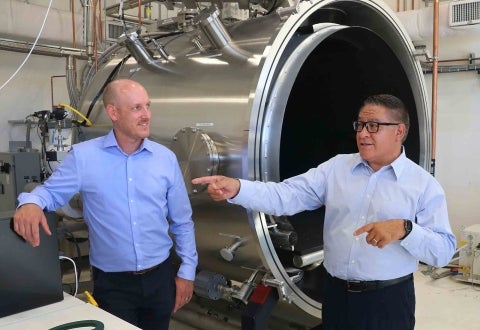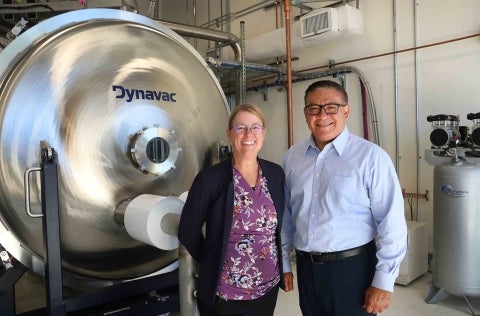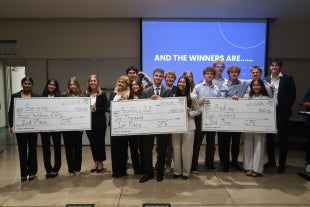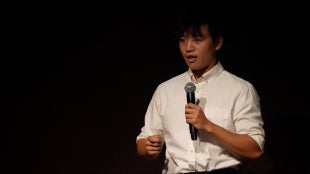Congressman Salud Carbajal Celebrates Educational Partnership with Air Force Research Lab and Cal Poly
Contact: Charlotte Tallman
805-756-6402; ctallman@calpoly.edu
SAN LUIS OBISPO — Congressman Salud Carbajal celebrated the future of space exploration with the opening of a new vacuum chamber in Cal Poly’s College of Engineering, used for testing spacecraft or spacecraft parts under a simulated space environment, during a tour at the university’s campus Aug. 11.

Carbajal championed Cal Poly’s partnership with the Air Force Research Laboratory that funded roughly $2.5 million to enhance the Aerospace Engineering Department and boost its mini-satellite program, which was the catalyst for a substantial expansion of space research two decades ago. To date, Carbajal’s efforts have brought in approximately $12.5 million to the College of Engineering.
Cal Poly became a major contributor to space research roughly 20 years ago, when former Aerospace Engineering faculty member Jordi Puig-Suari co-created the CubeSat standard with Bob Twiggs of Stanford University. CubeSats are affordable and easy-to-make mini-satellites that allow governments, schools and private companies worldwide to explore space and conduct research more efficiently and affordably.
The new vacuum chamber will allow researchers to test and develop propulsion for CubeSats, allowing greater control of the satellites for space exploration. Currently, most CubeSats cannot be controlled in space, and propulsion and maneuverability are often viewed as the next major step in CubeSat technology.
“Our CubeSat program is notable because it involves students in significant research, testing and development,” said College of Engineering Dean Amy S. Fleischer. “Working with the Air Force will increase Cal Poly’s reputation for innovation while providing students opportunities to perform relevant, real-world research with industry.”

The Education Partnership Agreement (EPA) with the Air Force provides $5 million to be split evenly between Cal Poly and California State Polytechnic University, Pomona. Three U.S. representatives from California secured funding for the partnership — Carbajal, Norma J. Torres and Grace Napolitano — through the Consolidated Appropriations Act of 2020 (H.R. 1158).
“Military-educational partnerships like the one between the Air Force and Cal Poly enhance our national security capabilities and provide Cal Poly students with hands-on learning opportunities that set them up for successful careers when they graduate,” Carbajal said. “I am proud to have partnered with Congresswomen Napolitano and Torres to advocate for and secure this funding that will help drive innovation and support the next generation of aerospace leaders."
The EPA’s agreements between a defense laboratory and an educational institution allow the labs to provide equipment and personnel to the schools, as well as career and academic advice to students while involving faculty and students in research.
The EPA will help the Air Force Research Lab pioneer transformative aerospace technologies and accelerate its long-term strategic objectives in key areas, such as energy security, energy optimization, reusability, maneuverability and multi-mission mobility.
“Cal Poly’s Aerospace Engineering Department is already one of the best in the nation, and we will continue getting better,” Fleischer said. “This partnership allows us to enhance our Learn by Doing contribution and continue revolutionizing space exploration.”


